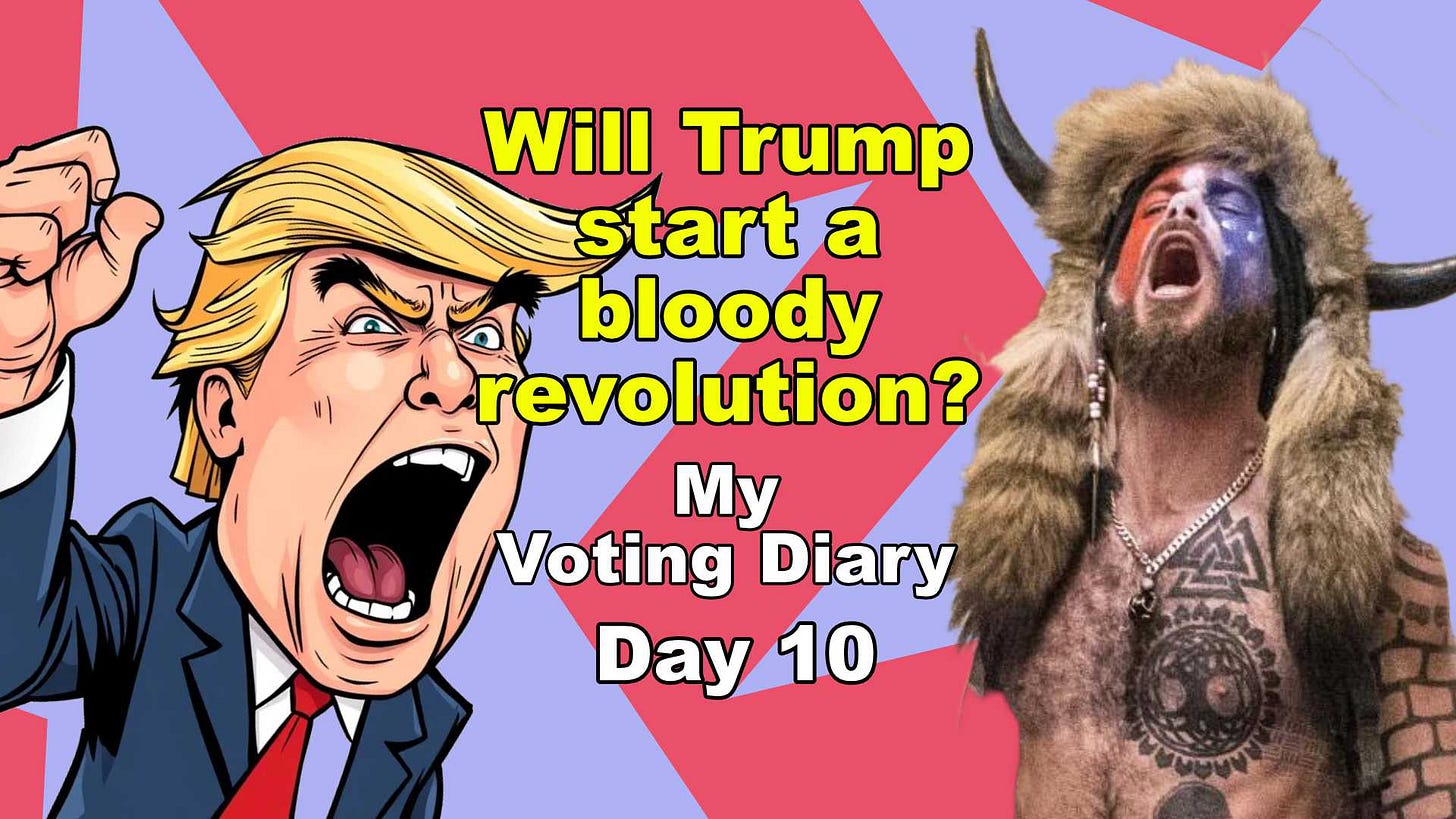What did Trump really do on January 6?
Or, Will Trump start a bloody revolution? My Voting Diary, Day 10
The question of the January 6 attack on the Capitol and, with it, the question of Trump trying to reverse the election, is one of the most important, and emotionally most terrifying issues facing America in this election.
Not only because it was a horrific thing to do – but because it seems like a preview of things to come. If Trump loses again, will he …
Keep reading with a 7-day free trial
Subscribe to Germerica to keep reading this post and get 7 days of free access to the full post archives.




